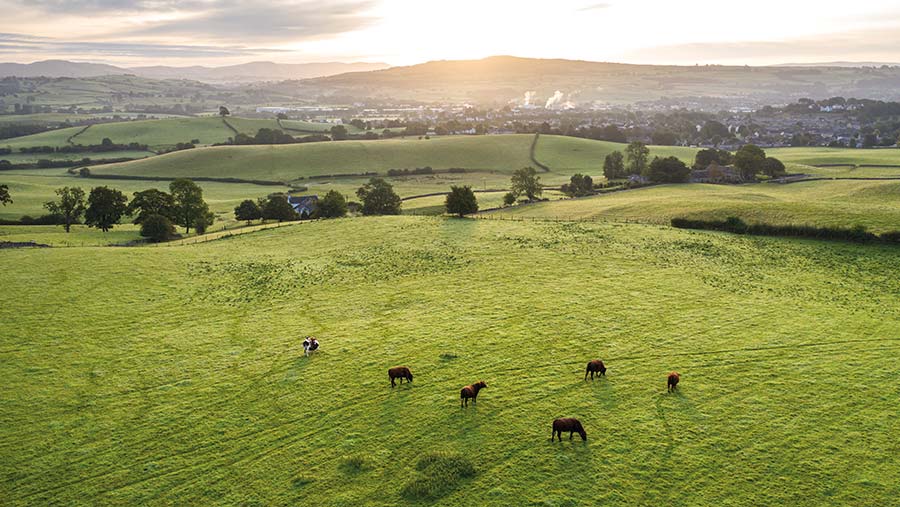Farmers support environmental measures but wary of SFI – survey
 © Eddie Cloud/Adobe Stock
© Eddie Cloud/Adobe Stock Farmers are enthusiastic about protecting the environment and boosting biodiversity, but remain wary of signing up to the government’s post-Brexit farming schemes, a survey has revealed.
Carried out online by the Country Land and Business Association (CLA) and land agent Strutt & Parker, the survey canvassed almost 200 landowners and farm managers in England last summer.
The aim was to gain an insight into attitudes towards post-Brexit farming and environmental schemes, and establish what on-farm measures were being taken to improve business resilience.
Overall, the survey uncovered a strong environmental drive among farmers, which has helped to debunk criticisms after government figures showed a slow uptake of green schemes
See also: ‘Chaos and confusion’ over ELM spooked farmers, says Labour
Farming schemes
Figures released at the start of November showed that just over 1,100 businesses had signed up to the government’s flagship Sustainable Farming Incentive (SFI) scheme for 2022.
The survey underlined this reluctance, revealing that just 40% plan to enter the SFI, compared with the government target of 70%.
The main reason given for avoiding the scheme in the near future was unattractive payment rates against the high costs of delivery.
One in five (19%) also blamed an excessively bureaucratic process and another 20% said they were waiting to see whether the scheme worked (see box).
Although there was a cautious approach to the SFI, two thirds of farmers said they were already in, or considering joining, the more established Countryside Stewardship scheme.
Poor scheme uptake at a glance
- Planning to enter scheme in next three years: 37%
- Payment rates unattractive: 51%
- Process too bureaucratic: 27%
- Waiting to gauge success of scheme: 28%
- Waiting for full SFI to become available: 27%
- Standards don’t yet fit current farming system: 19%
Environmental approach
While the survey suggested a wariness about the government’s post-Brexit approach, it clearly demonstrated a keenness among farmers to play their part in protecting the environment.
Asked whether farmers would deliver public goods under better-funded and more appropriate schemes, almost nine out of 10 said they would take action to protect or improve soil quality.
On biodiversity, 82% said they would be “likely” or “very likely” to manage land to help wildlife thrive under an appropriate scheme.
And two in five farmers canvassed added that they would be prepared to devote as much as one-fifth of their land to nature recovery if properly incentivised.
Further evidence of a desire to take a practical approach to improve the environment was demonstrated in a question on cutting carbon.
Just 23% of respondents had carried out a formal carbon audit, but more than double that number (56%) had already taken steps to cut their carbon footprint.
Environmental drive at a glance
- Farmers already taking steps to cut carbon footprint: 56%
- Countryside Stewardship Scheme sign up: >60%
- Aim to improve soil quality: 88%
- Targeting improved biodiversity: 82%
Business resilience
Longer term, the uptake of farming schemes featured more strongly in plans to bolster business resilience, being one of three key intentions for farms over the next three to five years. These are:
- Focusing on increasing the profitability of core agricultural enterprises
- Adopting a regenerative farming approach
- Increasing the area of land under an agri-environment scheme
But, while much has been made of exploiting natural capital for financial gain, farmers indicated that opportunities such as carbon trading were still a grey area.
Only 3% of farms sell soil carbon credits and significant concerns were revealed about trading.
Overall, just over one in three said they may sell soil carbon credits within the next 10 years, while 40% said they needed more information.
More than 40% said they first wanted to understand their own carbon footprint and prioritise offsetting their own emissions before looking into trading.
Response
Commenting on the survey findings, Strutt & Parker head of rural policy Rhodri Thomas said the results showed how farmers were willing to address biodiversity decline and tackle climate change.
“This gives me encouragement that, if we get the incentives and advice right, there is a chance of raising food output, managing the environment better and boosting the rural economy. It is possible to do all three,” he said.
President of the CLA Mark Tufnell said he was encouraged by the 40% of farmers intending to enter into SFI agreements, but concerns over payments must be addressed.
“Defra must fast-track the launch of new SFI standards and provide early clarity on payment rates so that farmers and land managers make informed decisions about the scheme,” he said.
Mr Tufnell added that Defra should capitalise on the encouraging level of interest in Countryside Stewardship and ensure that the scheme was retained until the Local Nature Recovery scheme could be fully launched.
